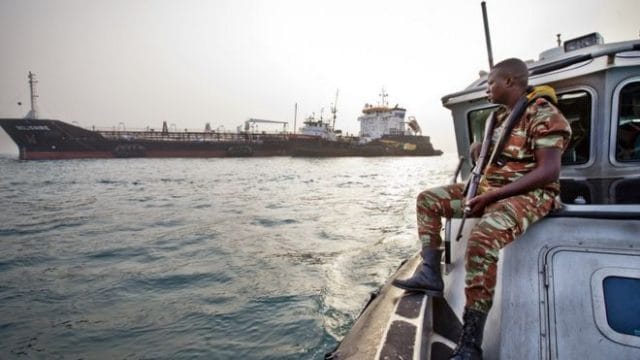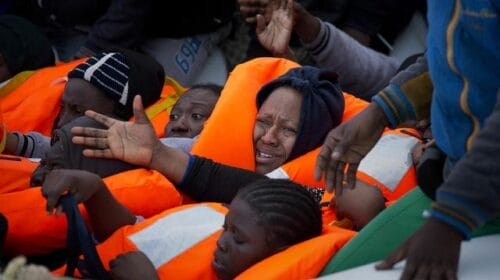Piracy in the Gulf of Guinea: How to deal with the problem

– –
When it comes to maritime security, the west coast of Africa has been the subject of attention of the international community for a few years now. Nowhere in the world is the risk of pirate attacks as high as in the Gulf of Guinea.
That is particularly problematic as the region is of big strategic importance in terms of transporting energy products.
Despite the International Maritime Organization (IMO) raising concerns about the severity of the problem, coastal states have not been successful at eradicating piracy.
West African countries negatively affected
Initially, pirates operating in the Gulf of Guinea would attack ships in order to steal their cargo and equipment. They would later smuggle oil and resell it abroad making a profit. In recent years, however, kidnappings for ransom have been becoming more and more popular.
The attacks negatively affect the export of petroleum goods from a number of Western and Southern African states to Europe and the United States. Piracy leads to a decrease in maritime traffic in the region, which signifies revenue losses of states.
– –
In Nigeria, which is the leading oil producer in Africa, around 400,000 barrels of crude oil are lost to piracy each day.
Piracy is also linked to wider terrorist activity. It serves to fund terrorist groups operating across West Africa.
During one pirate incident, the attackers can steal up to $6 million worth of oil. Using the money they get from reselling it they purchase firearms and other military equipment allowing them to carry out more advanced operations.
Moreover, as pirates know where waters are not being monitored and protected efficiently, they can easily establish routes for trafficking drugs, arms, and people.
Piracy thriving under weak law enforcement
– –
Despite piracy having a negative impact on trade in the region, as well as on the safety of ship crews, many African states overlook the problem. Maritime laws are not coordinated, hence some states do not even prosecute hijackers.
Governments are inefficient, and weak law enforcement and corruption are the two main factors that facilitate the functioning of pirates.
In order to eradicate piracy, international cooperation on the matter and harmonisation of maritime laws is essential. Coastal states should work in close partnership with each other and with the International Maritime Organization.
They should share information to increase their law enforcement capacities. Without that, piracy is going to continue to thrive, progressively turning the Gulf of Guinea into a no-go zone.
Katarzyna Rybarczyk is a Political Correspondent for immigrationnews.co.uk. This is a media platform that helps to raise awareness about migrant injustices and news around the world and helps people get immigration advice.




